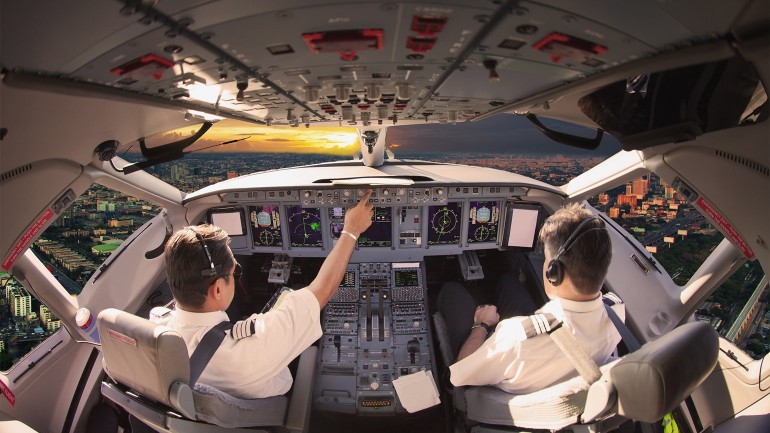Sponsored Listings:
As the Big Four U.S. airlines completed a slew of major year-end labor negotiations, a key question on the minds of many industry observers was whether the resulting shift in cost structure would prove to be sustainable.
Early this month, Delta’s 13,000-plus pilots ratified a labor deal that increased pay, retroactive to Jan. 1, by 18%. The increase will have a $475 million impact on the airline’s fourth quarter, including $380 million in retroactive pay.
The deal set a new standard for U.S. airline industry pilot agreements. But Southwest and United also entered into labor deals with pilots in 2016. And between them, the four largest U.S. carriers – Delta, American, United and Southwest – completed 15 labor deals this year.
For the airlines, which have made record profits over the last two years, the deals bring the security of labor peace. United for example, entered into five union deals in 2016, clearing its slate of labor negotiations.
Southwest, meanwhile, completed six contracts, including a deal with its 8,000 pilots in November, a deal with its 14,500 flight attendants in October and a deal with its more than 12,000 ground-service workers in February.
Southwest COO Mike Van de Ven said that from the standpoint of Southwest passengers, those deals won’t have an impact.
“Whether we’re in contract negotiations, whether we’re not, we’re going to take care of our passengers better than anyone in the industry,” he said.
Still, the pay increases change the cost structure for Southwest and the other major U.S. carriers.
The Southwest pilots’ deal, which was reached after a four-year standoff, raised compensation by 15% immediately and will raise it by another 15% over the coming four years. The Southwest flight attendants’ deal provided raises of 12.5% over three years and a signing bonus that the Wall Street Journal reported to be 16%.
United’s pilot deal, ratified by its 12,000 pilots in January, raised compensation by 13% immediately and by 22% through 2019. But United pilots are now in line for a bigger bump because the contract included a clause stipulating that pay would increase to Delta levels if Delta’s pilots got a more lucrative deal.
Meanwhile, the interim pay agreement American reached with ground workers in August provided pay bumps of between 15% and 55%. In fact, said American spokesman Matt Miller, since merging with U.S. Airways in 2013, wages have increased companywide by an average of 35%.
The higher pay scales are evident in the carriers’ financial reports. American’s costs for salaries, wages and benefits were up 15.3% year over year in the third quarter. Those same costs were up 8% at Delta and 12.4% at Southwest. At United, the increase was a more modest 3.6%.
While some of those increases are related to one-time payments from new labor deals, the figures don’t include other major agreements, including the Delta and Southwest pilot contracts and United’s new pact with its 9,000 technicians. In addition, Delta announced in November that it would increase the base pay of most employees by 6%.
Holly Hegeman, an industry analyst who writes the weekly newsletter PlaneBusiness Banter, said the labor-cost increases are unlikely to lead to higher ticket prices. Fuel costs, competition and market conditions play much more important roles in pricing.
In fact, Hegeman said, the deals should be good for flyers.
“Theoretically, happier employees make for better service,” she said.
Hegeman added that as opposed to some generous labor deals of the past — she cited a 2000 United pilots’ contract that weakened the carrier’s finances ahead of 9/11 and is believed to have played a role in United’s being forced into a 2002 bankruptcy filing — these deals have been made by companies that knew they could afford them.
Still, Hegeman wondered whether Southwest would be forced to drift further from its low-cost roots due to spiraling labor overhead.
“Southwest has a fairly low fare base to start with, so you can see where the problem comes in,” she said.
Hegeman isn’t alone in asking that type of question. In a Forbes column in August, contributor Dan Reed proclaimed that the proposed Southwest pilots’ contract would force the carrier to act conventionally.
Sourse: travelweekly.com










